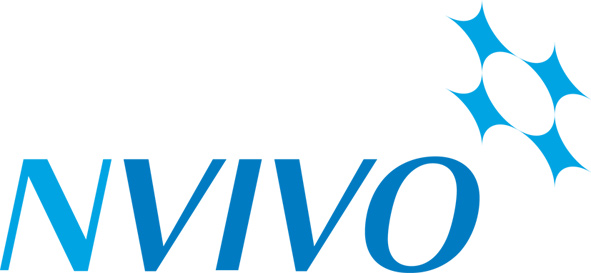
Nicola McNeil is an Associate Professor of Management from the School of Business, Law & Entrepreneurship at Swinburne University of Technology in Melbourne. Nicola is currently working on several research projects in the areas of gender and work and the impact of high-performance work practices on employee wellbeing. She has received research grants and consultancies from the Canadian Social Sciences and Humanities Research Council, the Australian Federal Government, VicHealth, and a variety of industry partners and not-for-profit organisations. Her research has been published in leading journals including the Journal of International Business Studies, the International Journal of HRM and European Sport Management Quarterly.
Nicola teaches units in the fields of human resource management and research methods to undergraduate and postgraduate students. She is also an instructor for the Australian Consortium of Social and Political Research Inc (ACSPRI) and offers courses on the use NVIVO and mixed methods research designs.
In this 5 day course, participants will learn how to analyse qualitative data using NVivo. The course takes a holistic view of the analysis of qualitative data using computer assisted techniques. We will examine not only the mechanics of driving the NVivo software package, but also how to plan for the collection of data; preparation of data for analysis; as well as the analysis of the data. You will also be introduced to advanced analysis tools, including those for theory building, validation and presentation of findings.
Participants will explore applications of the software to their own research projects. Sample data will be provided but participants should bring their own data sets, if you have them, and/or copies of articles and research reports relevant to their field of study.
The target audience for this course is researchers in the social sciences and related fields that draw on qualitative data. The course is an introductory level course, and would suit researchers, (including postgraduate students) with limited experience in computer-assisted analysis software and processes.
Participants are encouraged to bring their own qualitative data or NVivo project files, to work on during the course. If participants don’t have their own qualitative data or NVivo project files, one will be provide to you to work on.
Day 1: Getting to know the NVivo working environment.
- Managing your NVivo workspace
- Project protocols and their application in NVivo
- Creating, saving and backing up NVivo Projects
- Preparing data for analysis in NVivo
- Working with cases, classifications and attributes
- Organising and managing data sources
- Working with data sources, including text, audio and video formats and handling non-text data within the context of an Nvivo project.
Day 2: Managing and thinking about data and recording reflections.
- Coding qualitative data
- Editing, Annotating and linking your data to reflect on and record ideas about data
- Creating memos in NVivo
- Mind maps, project maps and concept maps
- Importing and working with datasets and data imported from social media
- Importing bibliographic databases into NVivo (including using NVivo to analyse your literature)
- Putting the quality into qualitative analysis.
Day 3: Different approaches to coding and analysis
- Approaches to coding your data
- Creating codes or themes
- Running queries on your data (text search, word frequency, coding, group, query, matrix and crosstab queries)
- Using automated coding processes to search and code text.
- Building and viewing relationships in NVivo
- Introduction to framework matrices and sets
Day 4: Advanced analysis techniques
- Visualising your qualitative analysis (including an introduction to Leximancer)
- Quantifying qualitative data
- Inter-coder reliability
- Developing your project protocols
- Review - the most efficient way to build your NVivo project file
Day 5: Reporting your results
- Conventions for representing and reporting findings
- Developing your own narratives
- Sharing of your NVivo projects
- Reflection on your 5-day Nvivo immersion
- Q & A session.
This course will use the Windows version of NVivo.
You will need to bring your own laptop with NVivo for Windows preinstalled for the course.
NVivo for Macs will not be supported.
Completion of an introductory ACSPRI course in qualitative research techniques or an equivalent tertiary course is required. Alternatively a reasonable level of experience and familiarity with qualitative data analysis procedures would be acceptable. Efficiency in using Windows based software is essential. No prior knowledge of NVivo is required.
The instructor's bound, book length course notes will serve as the course text.
Other reading:
- Richards, L. (2009). Handling Qualitative Data: A Practical Guide (Second ed.). London: Sage.
- Bazeley, P. and Jackson, K. (2013). Qualitative Data Analysis with NVivo (Second ed.). London: Sage.
- Saldana, J. (2013). The Coding Manual for Qualitative Researchers. Second edition, London: Sage.
- Silver, C., and Lewins, A. (2014). Using Software in Qualitative Research: A Step-by-Step Guide (Second ed.). London: Sag
Q: Do I have to have used Nvivo before?
A: No prior knowledge of Nvivo is required.
Q: Do I need a background in doing qualitative research?
A: It helps significantly to have an understanding of what is involved in analysing qualitative data before taking this course.
The course not only taught me how to use NVIVO, but also taught me a lot about qualitative research methods. This course has been invaluable for both my work and study.
As a PhD student doing qualitative research, it was informative, challenging and adequately rigorous.
I enjoyed this course as it was practical, I will be using this software in the near future and now I feel confident to use it.
Nicola was super helpful and explained things well. The course notes also helped a lot. I think it is a great course.
I definitely benefitted from attending the course and can do things with the program now that I couldn't do easily at the start of the course.
We got through 5 days of heavy content in an interactive and engaging way - the presenter did really well!
The online sessions were actually very effective. The presenter was very conscious of the limitations of online access and reduced interaction that occurs in the face to face setting. The presenter provided ample opportunity to ask questions, review activities etc. which was helpful.
Went from zero knowledge of NVIVO to feeling very confident.
Working on projects is a great way to interpret the learning. The course was well structured between listening and doing.
Nicola is AMAZING she explains the applications of technical information really well. Very rich in terms of learning.
I came with some basic knowledge of coding in NVIVO but had not done any analysis. I now feel I could set up a new project in a robust and useful way and undertake analysis. The instructor and students both helped to answer my queries which was just great.
The instructor's bound, book length course notes will serve as the course text.
The notes will be provided to you on your first day.
